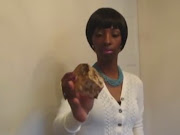What are the different types of eczema?
Eczema is a very generic term used to describe anything from Psoriasis, dry skin to Seborrheic eczema. Today we'll look at a few of the more common types of Eczema.
similar symptoms to atopic dermatitis. These are listed and briefly described below.
Atopic dermatitis
Atopic dermatitis is a chronic skin disease characterized by itchy, inflamed skin and is the most common cause of eczema. The condition tends to come and go, depending upon exposures to triggers or causative
factors. Factors that may cause atopic dermatitis (allergens) include environmental factors like molds, pollen, or pollutants; contact irritants like soaps, detergents, nickel (in jewelry), or perfumes; food allergies; or
other allergies. Around two-thirds of those who develop the condition do so prior to 1 year of age. When the disease starts in infancy, it is sometimes termed infantile eczema. Atopic dermatitis tends to run in families, and people who develop the condition often have a family history of other allergic conditions such as asthma or hay fever.
Contact eczema
Contact eczema (contact dermatitis) is a localized reaction that includes redness, itching, and burning in areas where the skin has come into contact with an allergen (an allergycausing substance to which an individual is sensitized) or with a general irritant such as an acid, a cleaning agent, or other chemical. Other examples of contact eczema include reactions to laundry detergents, soaps, nickel (present in jewelry), cosmetics, fabrics,
clothing, and perfume. Due to the vast number of substances with which individuals have contact, it can be difficult to determine the trigger for contact dermatitis. The condition is sometimes referred to as allergic contact eczema (allergic contact dermatitis) if the trigger is an allergen and irritant contact eczema (irritant contact dermatitis) if the trigger is an irritant. Skin reactions to poison ivy and poison sumac are examples of allergic contact eczema. People who have a history of allergies have an increased risk for developing contact eczema.
Seborrheic eczema
Seborrheic eczema (seborrheic dermatitis) is a form of skin inflammation of unknown cause. The signs and symptoms of seborrheic eczema include yellowish, oily, scaly patches of skin on the scalp, face, and occasionally other parts of the body. Dandruff and "cradle cap" in infants are examples of seborrheic eczema. It is commonplace forIt is commonplace for seborrheic dermatitis to inflame the face at the creases of the cheeks and/or the nasal folds. Seborrheic dermatitis is not necessarily associated with itching. This condition tends to run in families. Emotional stress, oily skin, infrequent shampooing, and weather conditions may all increase a person's risk of developing seborrheic eczema. One type of seborrheic eczema is also common in people with AIDS
Black soap, because it's high in vitamines A & E, is a great natural treatment. The fact that there are no chemicles means that it's safe to use (It won't worsen the condition) for most conditions. It must be stressed that eczema has many different inputs: Genetic, diet and environment, so there's no silver bullet. My research shows that the vast majority of people that have used genuine black soap have found a degree of relief - even complete relief from all symptoms.
Next time we'll look at other types of eczema.





1 comments:
I use vapor rub on eczema / psoriasis after a warm compress cleaning of the area and wrap or put a sock on it to trap moisture. Nice temp result. Waiting to see how long it can sustain the remedy.
It was a foot manicure that had a dye in the foot bath given, they used a metal scrub tool that broke the skin. They infected the foot at that point where I saw contact dermatitis....wake up skin cells defense, changing to an eczema moments and ending as a psoriasis outcome. Harder to treat. But, using vapor rub now gives the skin a chance to heal and seize progression of skin breakdown and soothe pain. Trial is good but, when does one stop using it is unknown at this point.
Post a Comment